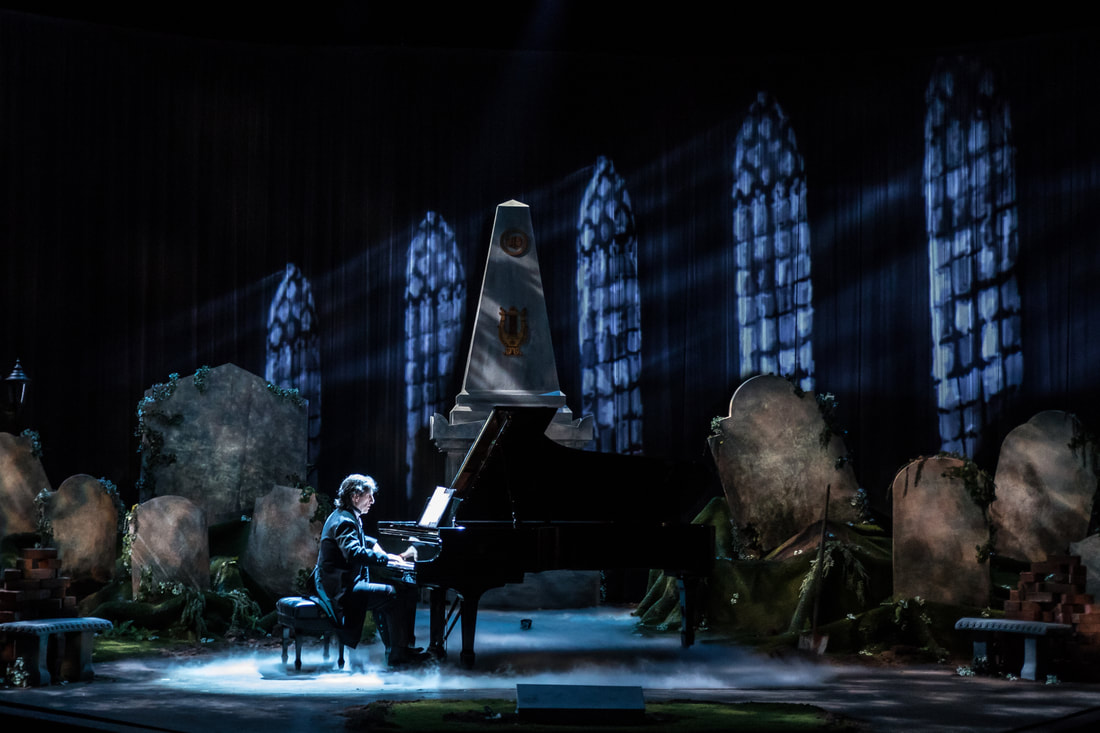|
Hershey Felder in "Hershey Felder, Beethoven." Photo courtesy of San Diego Repertory Theatre Much more than a kind of “Beethoven 101, “Hershey Felder’s one-man play with music (and what music!) is a thoughtfully immersive dramatization of the life of one of the world’s great musical geniuses. As he has done previously with other masters of the classical idiom (Tchaikovsky, Chopin, Liszt) and towering 20th century figures (George Gershwin, Irving Berlin, Leonard Bernstein), Felder combines theatrical narrative and performance on an impeccable Steinway to chilling effect. Hershey Felder, Beethoven at the San Diego Repertory Theatre under the direction of Joel Zwick is a swift (90 minutes) but revealing portrait of Ludwig van Beethoven in all his tortured complexity.
Felder based this show’s narrative on a text by Gerhard von Breuning, the son of Beethoven’s lifelong friend, Stephan von Breuning (though the two were estranged for years) and briefly a student of Beethoven’s. Felder portrays both Gerhard von Breuning and Beethoven during the hour and a half onstage. Through them, he recounts the turbulent life of one of classical music’s titans: Beethoven’s abiding passion for his craft, his intuition for innovation, his defiance of convention and, all too early in his career, the onset of deafness. Like with other Felder interpretations, this one transcends exposition because of the music. Among the beloved works of Beethoven performed are the “Emperor Concerto,” “Moonlight Sonata,” which Felder emphasizes was not a title chosen or favored by Beethoven, and, as a coda to the evening, “Fur Elise.” Despite all that’s been written about Beethoven in nearly 200 years, much of his life, and certainly his death, is shrouded in myth. But the fascination with Beethoven, whether it be among musicologists, musicians or simply those who are moved by the works he created, is more potent than legend. Still, it’s a stunning moment when, in depicting Beethoven’s last moments on Earth, Felder rises up from the deathbed and shakes his fist at the heavens. Even if apocryphal, it’s a depiction of a man whose fierce, unyielding spirit (and perhaps anger) left an indelible mark on a world that though it cheated him of happiness was the beneficiary of the beauty he gave it. (Review originally published in San Diego CityBeat on 3/6/19.)
0 Comments
Leave a Reply. |
AuthorDavid L. Coddon is a Southern California theater critic. Archives
July 2024
Categories |
David Coddon |
|
